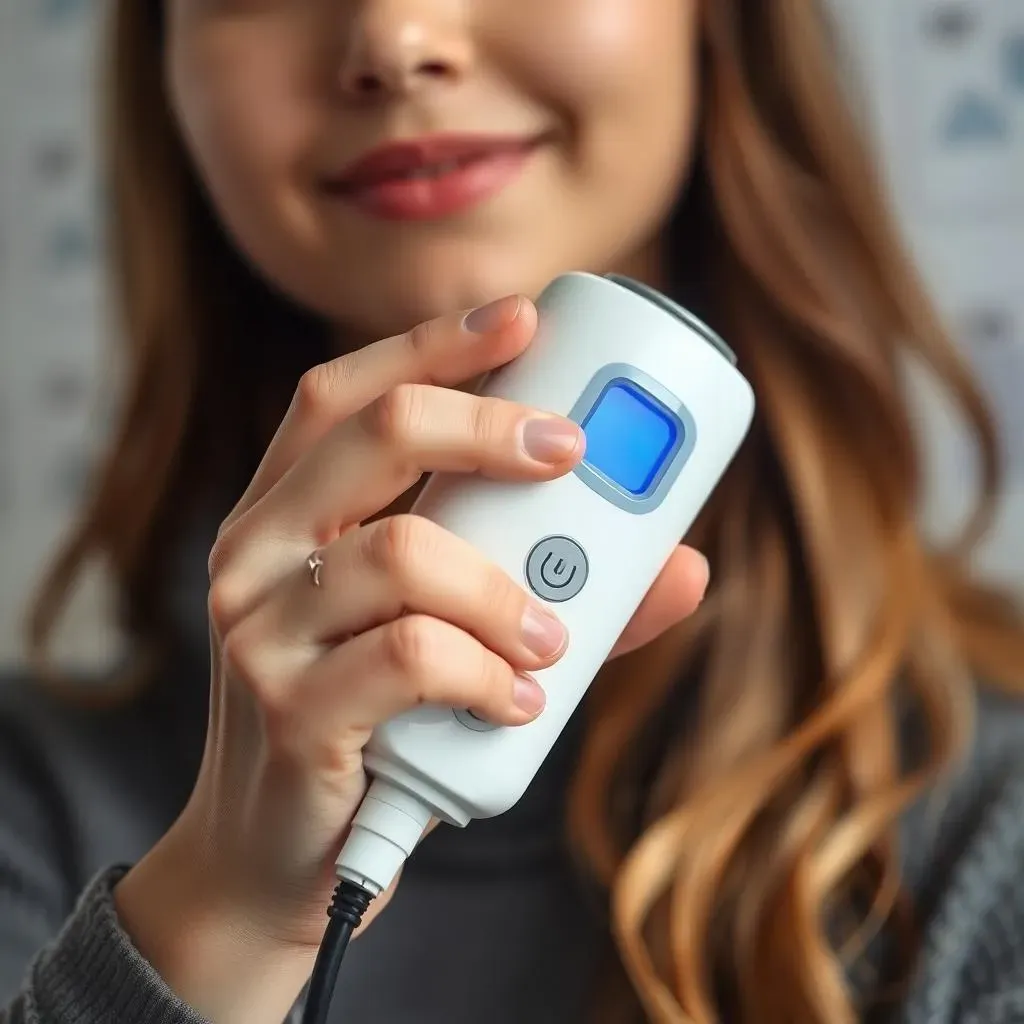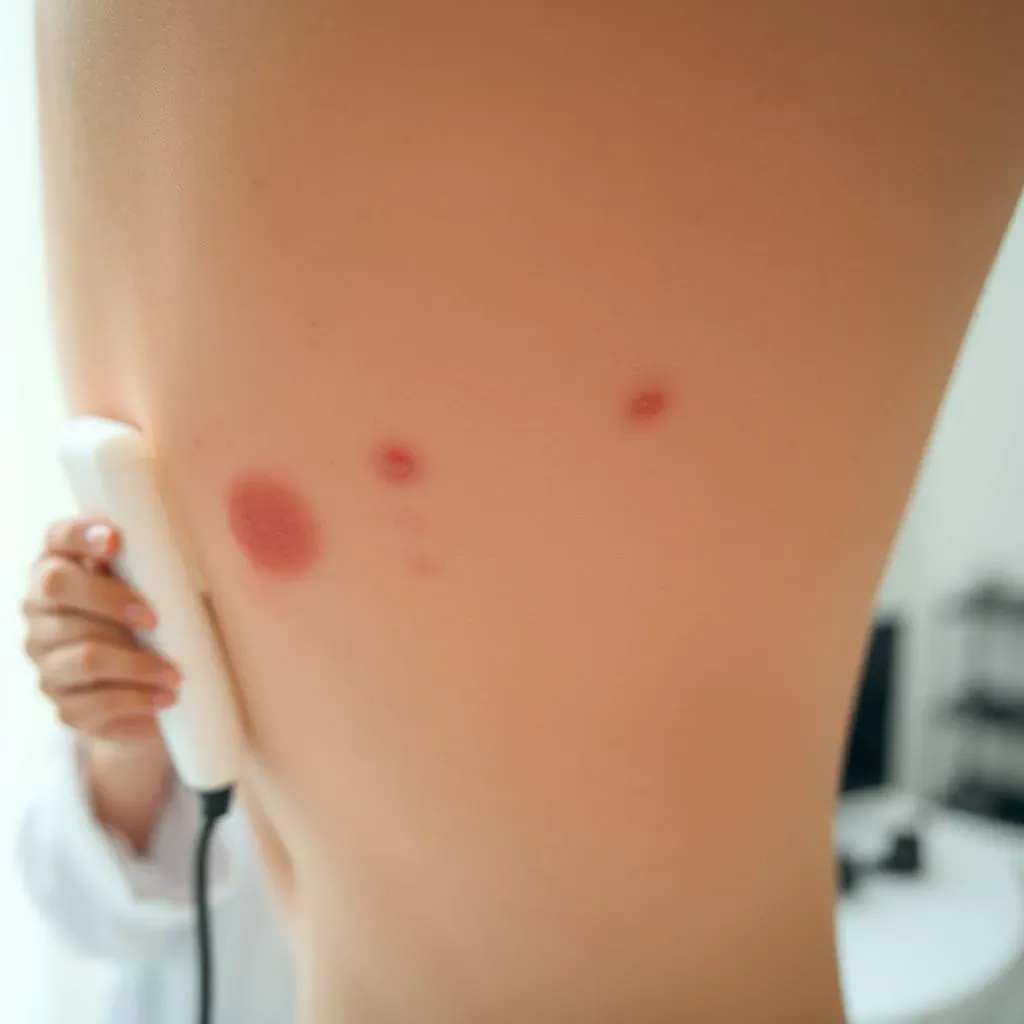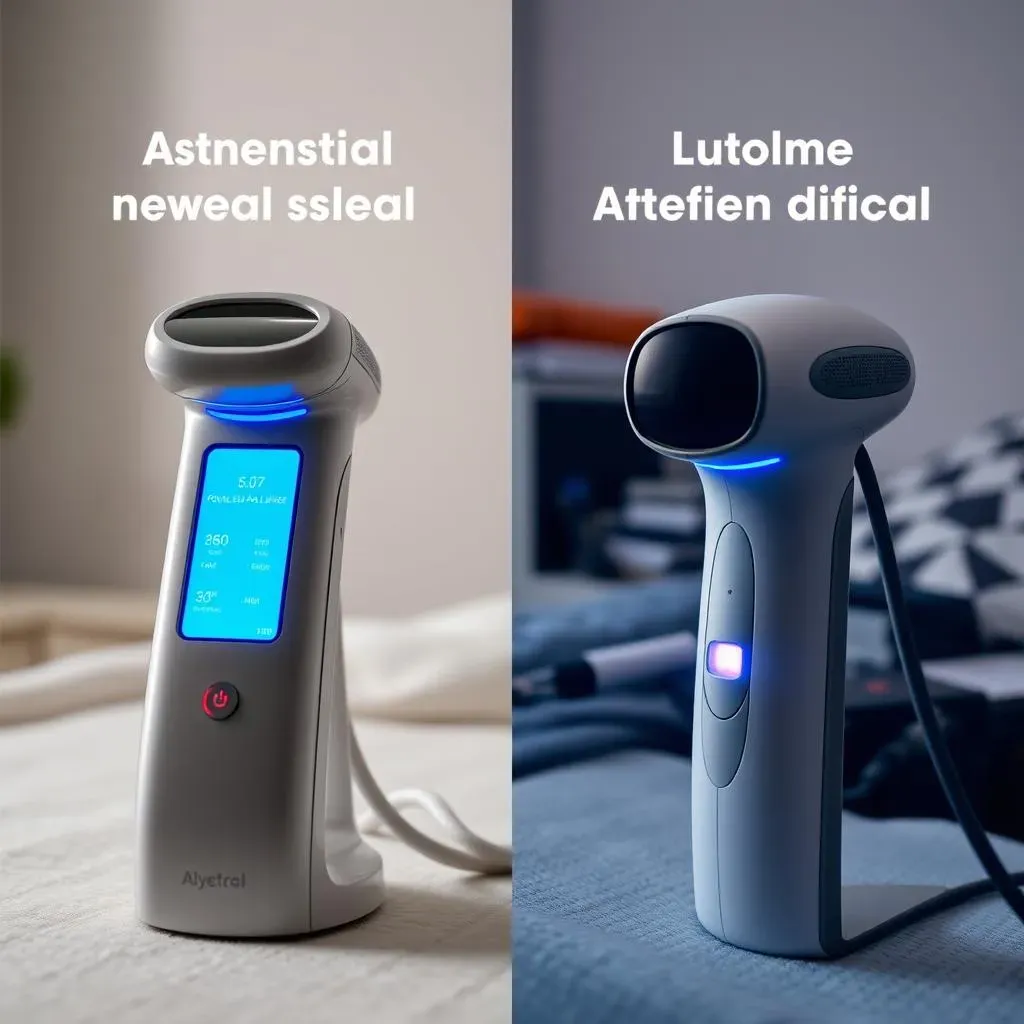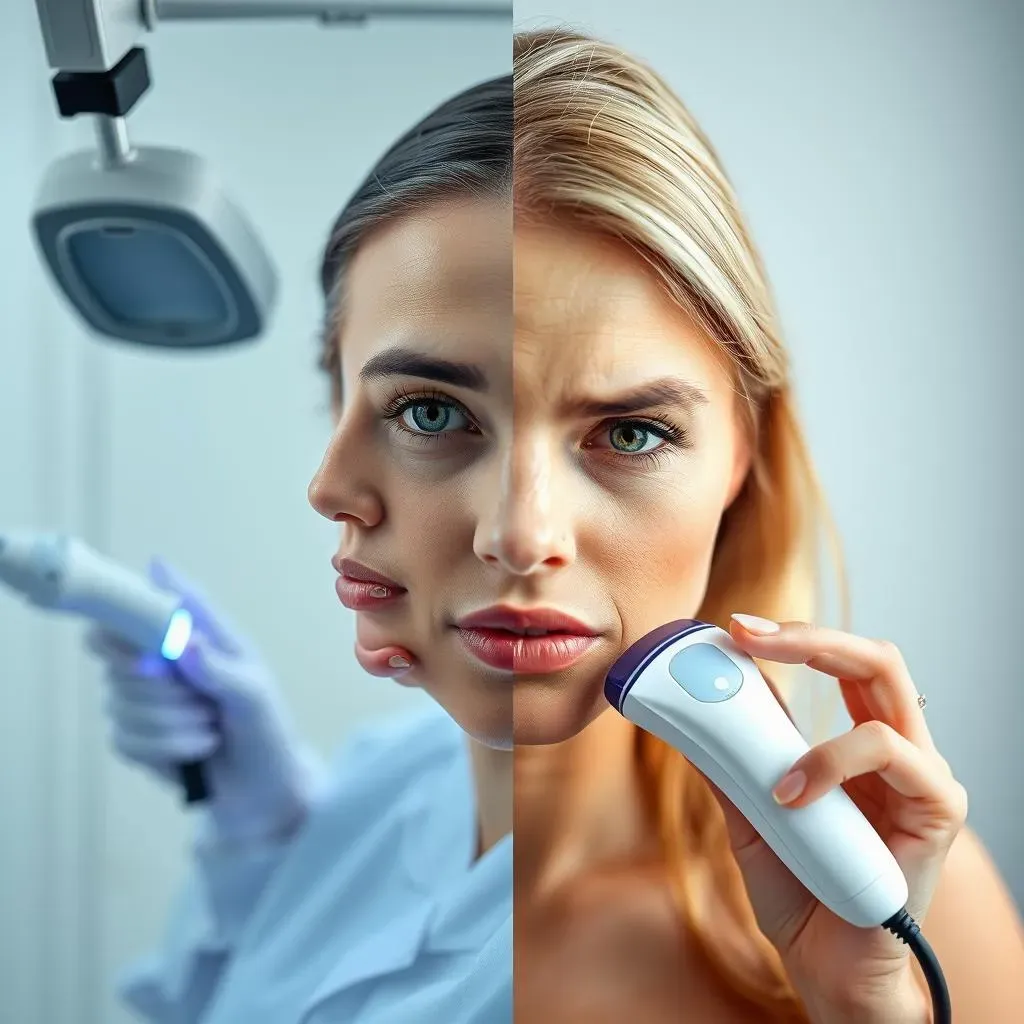Table of Contents
Tired of shaving, waxing, or plucking? Laser hair removal sounds like a dream, right? Smooth skin with less hassle. But what about doing it yourself at home? Is it safe to do laser hair removal at home, or should you leave it to the pros? That's the big question we're tackling. We'll walk you through the basics of how laser hair removal works, what the risks are, and if those at-home gadgets are worth the hype. We'll also compare the professional treatments to the DIY devices, so you can make a smart choice. Stick around, and let's figure out if zapping away hair at home is a good idea for you or a recipe for disaster. Get ready to separate the facts from the fiction, and understand if you should embrace the at-home laser trend, or run for the hills.
Understanding Laser Hair Removal

Understanding Laser Hair Removal
How Does Laser Hair Removal Work?
so laser hair removal isn't about blasting hair off with a Star Wars laser. It's actually a pretty clever science. The process uses a special light that targets the pigment, or color, in your hair. This light converts to heat, damaging the hair follicle, which is like the root of your hair. When the follicle is damaged, it can't grow new hair – or at least, it can't grow it as well. Think of it like weeding your garden, but instead of pulling weeds, you're using light to stop them from growing back. It's not instant magic, but it's a pretty neat trick.
The best part? The laser is designed to target the hair follicle and not damage the skin around it. That's why it's more effective for people with dark hair and light skin, since there's a bigger difference between the hair and skin pigment. But, don't worry if you don’t have that combo, technology has come a long way, and there are now lasers that can treat darker skin tones more safely. It does take several sessions to see the full effect, since hair grows in cycles. Not all the hair is growing at the same time, so you need to catch each follicle in its growing phase to get the best results. This is why you need to be patient and consistent with treatments.
Who Is Laser Hair Removal For?
Laser hair removal isn’t a one-size-fits-all solution. It’s most effective on people with dark, coarse hair and light skin. This is because the laser targets the pigment in the hair, and the greater the contrast between the hair and skin, the easier it is for the laser to work without damaging the skin. People with blonde, red, or gray hair may find it less effective, as these hair colors have less pigment for the laser to target. Also, those with darker skin tones should look for lasers specifically designed for their skin type, as regular lasers can cause pigment changes or even burns. It's like choosing the right tool for the job – you wouldn't use a screwdriver to hammer in a nail, would you?
Even though it's not a perfect solution for everyone, laser hair removal can be a great option for those who are tired of the daily grind of shaving, waxing, or plucking. It can save you time, effort, and those pesky ingrown hairs. It's also a longer-term solution, as the results last much longer than other methods. If you are thinking about getting laser hair removal, it’s best to talk to a dermatologist or a qualified technician. They can assess your skin and hair type and let you know if it’s a good option for you and what to expect. Remember, everyone is unique, and what works for one person might not work for another.
Hair Color | Skin Tone | Effectiveness |
|---|---|---|
Dark | Light | Most Effective |
Light (Blonde, Red, Gray) | Any | Less Effective |
Dark | Dark | Requires Special Laser |
Risks and Side Effects of Laser Hair Removal

Risks and Side Effects of Laser Hair Removal
Common Side Effects
so laser hair removal isn't all sunshine and smooth legs. There are some side effects you should know about. The most common ones are redness and swelling, kind of like a mild sunburn. Your skin might feel a bit sensitive or itchy for a few hours, maybe a day or two. Usually, these side effects fade away on their own, and they're pretty normal. It's your body's way of reacting to the laser, you know? Like when you get a little red after a good workout. It's a sign that things are happening, but it's not a cause for major alarm.
Another thing to watch out for is some temporary changes in your skin pigment. This can show up as darker or lighter spots, but it's not usually permanent. It's more likely to happen if you have darker skin, or if you've been out in the sun a lot before or after your treatment. That's why it's so important to avoid sun exposure and use sunscreen, like, religiously. It's not just about preventing wrinkles, it's about protecting your skin during laser treatments. Think of it as a shield to keep your skin happy and healthy.
Rare but Serious Risks
Now, let's talk about the less common, but more serious, risks. In rare cases, people can get blisters, burns, or even scars from laser hair removal. This is more likely to occur if the technician isn't properly trained, or if the laser settings aren't right for your skin type. That's why it's essential to choose a qualified and experienced professional. It's not like getting a haircut where a small mistake can be easily fixed. We're dealing with lasers here, so you want to be sure the person knows what they're doing. So do your homework, check reviews, and make sure they have the right certification.
Another rare risk is infection. This can happen if the skin isn't properly cleaned before the treatment or if you don’t follow the aftercare instructions, like keeping the treated area clean. If you notice any signs of infection, like increased redness, swelling, or pus, it’s important to seek medical attention right away. It's like getting a cut, you want to keep it clean to prevent any issues. Also, some people may experience changes in skin texture or hair growth. This isn't common, but it can happen. It's just one of those things that shows we're all unique, and our bodies can react differently.
Risk | Likelihood | Severity |
|---|---|---|
Redness/Swelling | Common | Mild |
Pigment Changes | Possible | Usually Temporary |
Blisters/Burns/Scars | Rare | Potentially Serious |
Infection | Rare | Potentially Serious |
Importance of Proper Aftercare
After your laser session, it’s not like you can just forget about it and go about your day. You need to be careful and follow the aftercare instructions that your technician gives you. This usually means avoiding sun exposure, using sunscreen, and keeping the treated area clean and moisturized. It's like taking care of a plant. You can't just plant it and leave it. You have to water it, give it sunlight, and protect it from pests. Your skin is the same way, it needs your care and attention to heal well after the treatment.
Also, you should avoid hot showers, saunas, and strenuous exercises for a day or two after your treatment. The heat can irritate your skin and make the side effects worse. It's like when you have a sunburn, you don't want to make it worse, right? So, be gentle with your skin and treat it with care. Remember, following the aftercare instructions can make a big difference in how well you heal and how good your results are. It's all about being patient and taking good care of yourself.
Is it Safe to do Laser Hair Removal at Home?

Is it Safe to do Laser Hair Removal at Home?
so now we get to the real question: is it safe to do laser hair removal at home? The short answer is: it's complicated. At-home laser devices are not as powerful as the ones you'd find at a doctor's office or a professional clinic. This means they might not be as effective, and you might need more treatments to see the same results. Also, the safety of these devices isn't as well-studied as professional treatments. That means there's a bit more risk involved. Think of it like cooking at home versus eating at a restaurant. You have more control, but you also have to be more careful. You're not a professional chef, so you have to make sure you follow the recipe and don't burn the kitchen down.
The big risk with at-home devices is that they might not be suitable for your skin tone or hair color. If the settings aren't right, you could end up with skin damage, like burns, hyperpigmentation (darkening of the skin), or even scars. Also, these devices require a lot of patience and consistency. You have to be diligent with your treatments and follow the instructions carefully. It’s not like you can just zap away your hair once and be done with it. You need to be responsible and do your research. It’s like taking care of a pet, you have to be committed to the process and give it the attention it needs.
Factor | Professional Laser | At-Home Laser |
|---|---|---|
Power | Higher | Lower |
Effectiveness | More Effective | Less Effective |
Safety Studies | More Studies | Fewer Studies |
Risk of Damage | Lower (with qualified professional) | Higher (if not used correctly) |
Comparing Professional vs. AtHome Laser Hair Removal

Comparing Professional vs. AtHome Laser Hair Removal
So, you're trying to decide between going to a professional and zapping your hair away at home, huh? It's like choosing between a gourmet meal at a fancy restaurant and a quick microwave dinner. Both can fill you up, but the experience and results are totally different. When you go to a professional, you're getting the real deal. They have powerful lasers that are designed for all sorts of skin and hair types, and they're trained to use them safely and effectively. They'll also be able to give you a personalized treatment plan based on your specific needs. It's like having a personal trainer for your hair removal journey – they know what they're doing and how to get you the best results.
On the flip side, at-home devices are more like a DIY project. They're less powerful, so they might not work as well, and you have to be super careful to avoid any accidents. It's like trying to build a house with a toy hammer, you can maybe get the job done, but it's going to take a lot longer and there's a bigger chance you'll mess something up. Also, with at-home devices, you're on your own, there's no expert to guide you. So, you have to be your own technician, which can be a little scary. It's like navigating a maze without a map, you might get there eventually, but there will be some bumps along the way. So, it's all about weighing the pros and cons and deciding what's best for you.
Feature | Professional Laser Hair Removal | At-Home Laser Hair Removal |
|---|---|---|
Power | High, medical-grade lasers | Lower, less powerful devices |
Effectiveness | More effective for a wider range of hair and skin types | May be less effective, especially on light hair or dark skin |
Safety | Performed by trained professionals, lower risk of burns or side effects | Higher risk of misuse, burns, or skin damage if not used correctly |
Cost | Higher initial cost, but may require fewer sessions | Lower initial cost, but may require more treatments over time |
Convenience | Requires scheduling appointments | Can be done at home at your convenience |
Expertise | Professional assessment and treatment plan | You are your own technician |
Final Thoughts on At-Home Laser Hair Removal
So, is it safe to do laser hair removal at home? The short answer is: maybe, but with caution. At-home devices can offer some hair reduction, but they're generally less powerful than professional lasers. This means you might need more treatments and the results might not be as dramatic. There's also a higher risk of side effects like skin irritation or pigment changes if you're not careful. If you're considering at-home laser hair removal, do your homework, pick a device that suits your skin and hair type, and follow the instructions closely. If you have any doubts, or if you're particularly worried about risks, talking to a dermatologist is always a smart move. Ultimately, the choice is yours, but it's always best to be informed before you start zapping.
